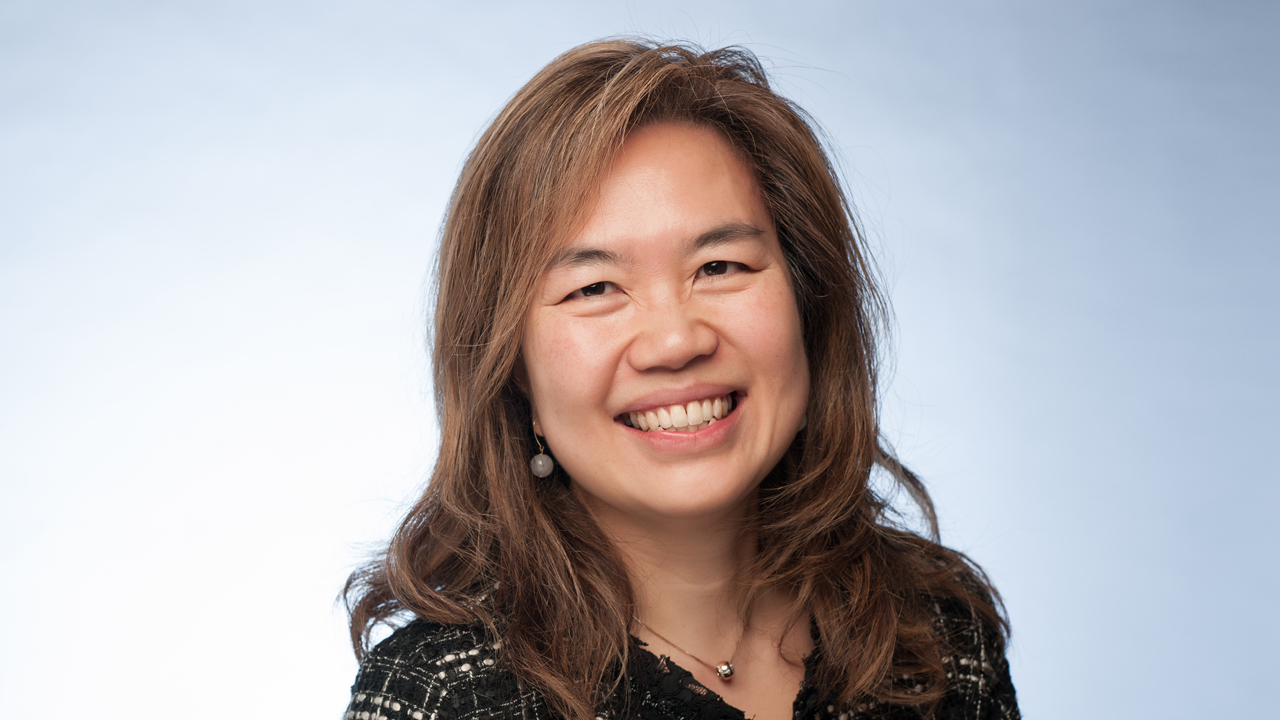CORINA SONG ON SHIPPING LAW AND 25 YEARS AT A&G
The Senior Accredited Specialist in Maritime and Shipping Law reflects on her career and the next generation of lawyers.
BY ASHUTOSH RAVIKRISHNAN

As our virtual interview gets underway, I notice that Corina Song’s office overlooks Marina Bay. It’s a fitting view for a lawyer who’s made her name as a leader in maritime and shipping law—and recognised as such by SAL, which named her a Senior Accredited Specialist in Maritime and Shipping Law last year.
The accreditation continues her success in the field, which she entered right after she was called to the Bar. “This was the early 1990s, when specialisation wasn’t as big a thing as it is today,” she recalls. “But during university and my pupillage, I thought it was important to plot the direction I wanted to go in.” Explaining her eventual decision to start her career in a medium-sized shipping firm, she continues, “Shipping seemed like a logical choice, given its importance to Singapore’s economy.”
Today’s maritime sector is vastly different, having grown in scope and size. Singapore has also grown as a maritime arbitration hub rivalling London, thanks to the many opportunities created by the relevant ministries and also to bodies like the Singapore Chamber of Maritime Arbitration, where Corina is vice-chairperson. “Back when I started, you would immediately associate London with maritime arbitration. But that’s changing because Singapore can be more cost-effective and convenient for users.”
Despite these promising trends, she lets on that it can still be challenging to recruit young lawyers to be a part of it. “I think today’s young ones are spoilt for choice,” she states candidly. “You’ve got all these other practice areas that are seen as ‘sexy’: fintech and technology. Shipping doesn’t have quite the same sheen.” She explains that she tries to change this perception of shipping law through her work with The Maritime Law Association of Singapore (MLAS) but admits that it’s an uphill task. “The young ones in the field … honestly, you can count them on two hands.”
So how does she then sell shipping law? By highlighting the possibilities it offers: “If you specialise in shipping, you can still do general litigation work. But the reverse is not true. You can’t go from being a commercial litigator to a shipping specialist overnight. And many important cases arise from shipping disputes,” she explains.
“Many young lawyers get excited about the prospect of arresting, releasing or selling a vessel. In practice, once a vessel has been arrested and released against security, the admiralty action proceeds just like any other action and in many cases, one will encounter a variety of contractual issues arising out of a charterparty or bill of lading dispute. So whilst you’re honing your skills as a specialist you will, at the same time, also acquire more general skills just like your contemporaries who have embarked on a career in general commercial litigation.”
MARKING A MILESTONE
Next year marks Corina’s 25th with Allen & Gledhill, where she made partner in 2000. Spending a quarter of a century at a single firm might boggle some minds, but she shares that longevity has had its merits. “The gestation period for the larger and more complex cases are typically longer. I’ll be honest, I don’t think many young lawyers these days can say that they’ve been able to see a large and complex case from beginning to end because turnover rates are so high!”
Over the years, she has widened her network not only through MLAS, but also through the International Bar Association, where she serves as its first-ever Asian co-chair of the Maritime & Transport Law Committee. Commenting on these networks, she says, “In the heat of the moment, you need to know who to call to help your client. If you don’t, you might lose the ship altogether.” When I point out that developing such networks might intimidate younger lawyers, she responds, “It’s not something you should be afraid of and it’s definitely not something that can happen overnight. But if you keep at it, you’ll get there. There’s a sense of reciprocity in the community that makes it easy for you to build a network.”
As we end our chat, she reflects on her time at Allen & Gledhill, noting that there have been many high points, including last year’s accreditation. Senior Accredited Specialists like Corina only sit for an interview, while Accredited Specialists have to sit for both an interview and an exam. But she says that the process should not intimidate her peers, adding that the interview with High Court judges and industry professionals is more like an “informal chat” regarding one’s portfolio of shipping cases over the last five years. “And once you’re accredited, it helps with getting new clients looking for shipping lawyers who are recognised as leaders in the field.”
Corina is among 37 practitioners who are Senior Accredited Specialists and Accredited Specialists in Maritime and Shipping Law. Lawyers who wish to be accredited as a Senior Accredited Specialist in Maritime and Shipping Law may now apply. Applications are now open and close on 31 August 2021. Interested applicants should refer to the Information Guide prior to completing the application form. For queries, please contact [email protected].






